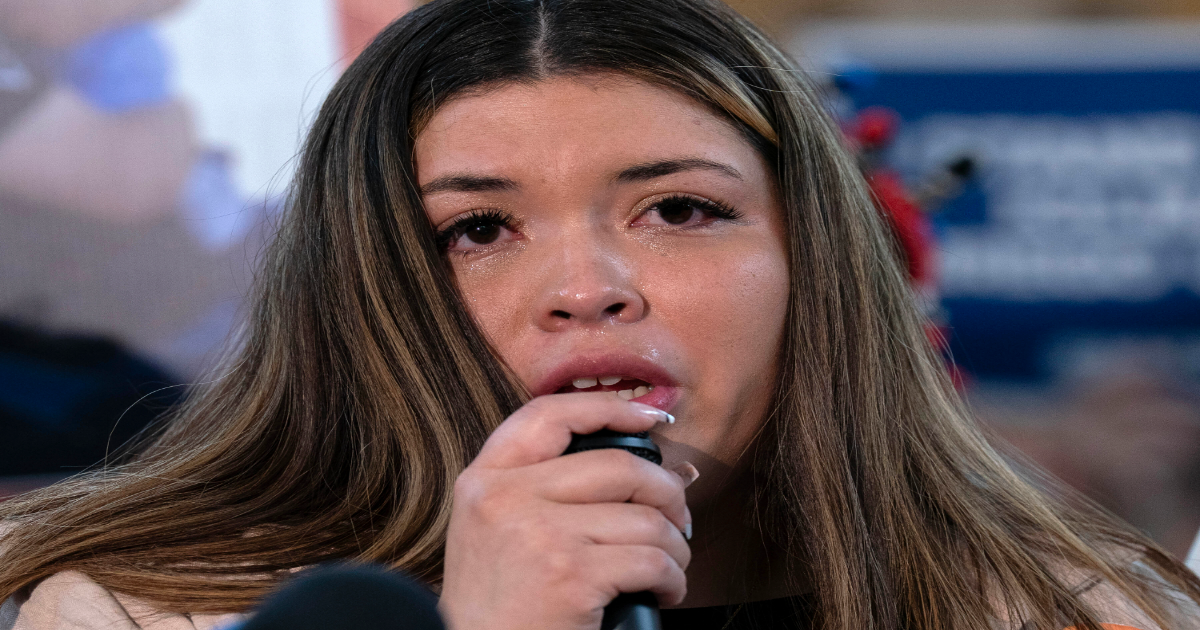A federal judge is sticking by her demand that the Trump administration seek the immediate return of a Maryland man erroneously sent to El Salvador, where he is being held in “one of the most notoriously inhumane and dangerous prisons in the world.”
U.S. District Judge Paula Xinis rejected the Trump administration’s entreaty to back off her Friday order, which requires the return of Kilmar Abrego Garcia by Monday night. The Justice Department said the court had no power to order the decision and was intruding on President Donald Trump’s exclusive power to direct foreign policy.
But Xinis described the erroneous deportation of Abrego Garcia — who was under a 2019 court order not to be sent to El Salvador, for fear of reprisal by a violent gang — as a “grievous error” that requires his return.
“Defendants seized Abrego Garcia without any lawful authority; held him in three separate domestic detention centers without legal basis; failed to present him to any immigration judge or officer; and forcibly transported him to El Salvador in direct contravention of [immigration law],” Xinis wrote in a 22-page opinion issued just after 1 a.m. Sunday morning. “Once there, U.S. officials secured his detention in a facility that, by design, deprives its detainees of adequate food, water, and shelter, fosters routine violence; and places him with his persecutors.”
Abrego Garcia’s case has generated enormous pushback from the courts, congressional Democrats and even roiled the Justice Department, where Attorney General Pam Bondi placed on leave the attorney who argued in front of Xinis on Friday. That attorney, Erez Reuveni, had expressed exasperation at the Justice Department’s refusal to provide more information to the court or take steps to seek Abrego Garcia’s return.
Abrego Garcia’s case is a complicated one. The Salvadoran national, in the United States since 2012, was deemed a danger in 2019 as a result of a purported tie to the MS-13 gang and detained for months before a judge agreed he faced credible fear of persecution by another gang, Barrio 18, that he said had been extorting his family.
As a result, Abrego Garcia was released into the United States, where he was living with his wife and son, both U.S. citizens, when immigration authorities detained and deported him last month without warning. He has long denied having links to MS-13.
The Justice Department admitted last week that it had erroneously sent Abrego Garcia back to El Salvador, in contravention of the 2019 court order, though officials contend they still view him as an MS-13 member who presents a danger to the United states.
Xinis noted in her opinion Sunday that the Justice Department presented “no evidence” that Abrego Garcia belongs to MS-13, effectively abandoning that position in her court. But by labeling him a gang member publicly, the judge noted that it placed him at particular risk in El Salvador’s prison, which she noted “intentionally mixes rival gang members.”
The judge also rejected the administration’s claim that it has no power to seek Abrego Garcia’s return because he is in Salvadoran custody. Rather, she suggests that the United States has essentially outsourced detention responsibility to El Salvador but retains some ability to seek the return of those it has transferred.
“Surely, Defendants do not mean to suggest that they have wholesale erased the substantive and procedural protections of [federal immigration law in one fell swoop by dropping those individuals in CECOT without recourse,” Xinis wrote, referencing the name of the Salvadoran prison
Xinis noted that Homeland Security Secretary Krisi Noem, who recently visited the jail, described the facility as “one of the tools in our toolkit that we will use.”
“Thus, just as in any other contract facility, Defendants can and do maintain the power to secure and transport their detainees, Abrego Garcia included,” Xinis said.
